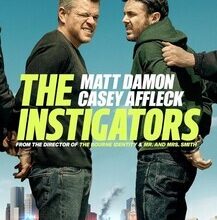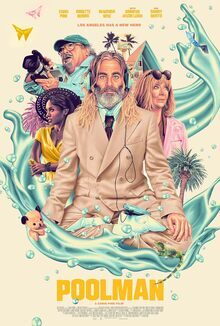
Poolman
Poolman

Now streaming on:
JustWatch
Chris Pine’s first film as a director, “Poolman,” is a character comedy about oddball Los Angelenos that doubles as a spoof of 1940s detective movies. Pine also cowrote (with Ian Gotler), co-produced, and plays the title character, Darren Barrenman. Darren is a big-bearded, long-haired, talkative, thoroughly goofy pool cleaner who lives in a tiny trailer right next to the pool that he tends, which is in the courtyard of an old Tiki-style motel that’s been converted into apartments. I think it’s set in the present, but maybe not. Nobody uses a cell phone, and there’s a heavy pre-1950s influence in the production design and costuming. One of the presumed bad guys drives a huge roadster like you’d see in the 1930s. The score is retro-hipster jazz with a violin and a zither. A mysterious woman named June Del Rey (DeWanda Wise) who appears out of nowhere and draws the hero into a mystery has a silhouette like a film noir dame and the wardrobe to match.
The mystery involves real estate and the corruption of a local city councilman named Stephen Toronkowsky, whom Darren sees each week at community meetings where he rants about historic preservation and the improvement of bus schedules. (The councilman is played by Stephen Tobolowsky, whose name is so similar to the character’s that you have to wonder if the part was written specifically for him.) Other films about corruption in Los Angeles are mentioned within the plot, including “Chinatown,” which gets multiple references plus actual clips, and “Who Framed Roger Rabbit,” which Darren yells about at one of the council meetings.
There’s not a whole lot of plot to describe or even allude to, and I don’t think “Poolman” is all that interested in what little there is. This is a vibes movie. Darren is a handsome, lovable, hairy man-child. His girlfriend Susan (Jennifer Jason Leigh), who manages the complex where Darren works, wants him to commit to her, but he’s so lost in his own racing thoughts that he doesn’t realize how much she adores him until it seems as if she’s about to give up. Darren goes to therapy twice a week with a New Age-y lady named Diane (Annette Bening) and is apparently the star of a documentary by Diane’s partner Jack (Danny DeVito), who’s betting his entire career on the project even though it’s hard to tell what it’s actually going to be about.
“Poolman” is a deeply weird movie. Not deeply weird in the sense of “alienating” or “hard to take.” On the contrary, it’s so gentle that it could probably be considered an example of Nicecore, a type of film described by critic David Ehrlich that mostly avoids conflict and resolution and instead showcases people being nice to others. There are arguments and some treachery and one murder, but the killing so formal, in an old-movie way, that it barely registers as being violent. Most of the movie is laid-back or mildly farcical.
No, the film is weird in the sense of “Can anyone but Chris Pine truly appreciate this?” I’m not asking that question because I disliked “Poolman.” I thought it was sweet and fun, and once I settled into it and latched into its wavelength, I laughed a lot, even though it does start to wear out its welcome towards the end because so much of it is dependent upon exploring the emotional interior of the kind of guy you’d be happy to chat with at a bus stop but wouldn’t want to sit next to. You don’t throw yourself into a project like “Poolman” unless you have a burning urge to do it, but that urge doesn’t always communicate itself.
The movie has been repeatedly compared to “The Big Lebowski” and other films in that spoof-of-LA-noir vein; I suppose there are superficial similarities. But it reminded me more of an unpolished answer to something like Jim Jarmusch’s Nicecore classic “Paterson,” which is about a New Jersey bus driver who writes poetry and loves his girlfriend. In its choice of hero and its hermetically sealed Something Old/Something New style, it is also (bizarrely at times) a kind-hearted mirror of “Taxi Driver” (instead of writing in a journal, Darren writes old fashioned letters on a typewriter to Erin Brockovich–the real crusading legal investigator, not Julia Roberts, who played Brockovich in the Oscar-winning movie).
This is the kind of film where the hero makes origami figurines and gives them to others to convey messages or feelings, and where one of the baddies tells the hero, “Never be afraid to trust an unknown future to a known god.” It’s the kind of movie where, during a confrontation, one antagonist suddenly slumps with his head down and says, “I’ve had a hard week” and the other replies “Me, too” and they end up hugging. It’s the kind of movie where a stakeout consists of five people hiding in plain sight from the people that they are surveilling, who make direct eye contact with them, and one of the stakeout participants is reading Karl Ove Knausgård’s “My Struggle” and suddenly begins to recite a passage from it and looks right into the camera as she does it. There’s also a dream sequence with a lizard whose voice is provided by Pine’s dad Robert Pine, who became a star on the American TV cop show “CHiPs.”
That’s all just another way of saying that this is the kind of film I think cinema could use more of, even though it’s far from perfect. Robert Altman and Hal Ashby and Alan Rudolph all used to make movies like this, especially when they were working small, as in projects like “Brewster McCloud” and “Harold and Maude” and “Trouble in Mind,” which, like “Poolman,” were all so wispily assembled that you could imagining them coming apart in a soft gust of wind, like a dandelion. There were also times when the movie reminded me of melancholy comedies starring Bening’s husband Warren Beatty, who often played hunky man-children who were so lost in their heads that they were their own worst enemies.
“Poolman” was unveiled last year at the Toronto Film Festival and got slaughtered by reviewers. That seems puzzling to me in retrospect because the film is so upfront about its own kookiness and near-weightlessness and relentlessly sunny-side-up attitude that it’s as hard to hate as a muffin basket or a big old fluffy dog. Some people won’t be able to tolerate five minutes of it, but I think others will love it, and they won’t be wrong to. I hope Pine makes more movies and refines whatever he was trying to do in this one. There are moments where it wanders into the sublime.

Matt Zoller Seitz
Matt Zoller Seitz is the Editor at Large of RogerEbert.com, TV critic for New York Magazine and Vulture.com, and a finalist for the Pulitzer Prize in criticism.
Now playing

Bodkin
Kaiya Shunyata

Eric
Kaiya Shunyata
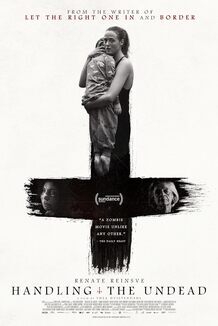
Handling the Undead
Katie Rife
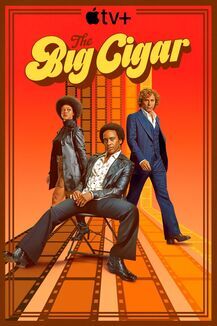
The Big Cigar
Robert Daniels
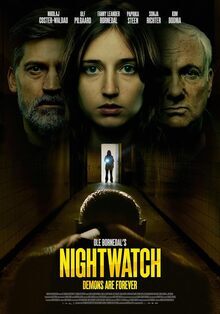
Nightwatch: Demons Are Forever
Simon Abrams
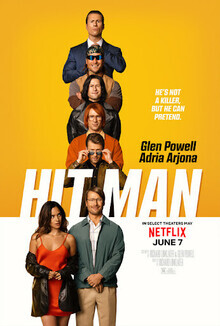
Hit Man
Brian Tallerico
Film Credits

Poolman (2024)
100 minutes
Cast
Chris Pineas Darren Barrenman
Danny DeVitoas Jack Denisoff
Annette Beningas Diane
Jennifer Jason Leighas Susan
DeWanda Wiseas June Del Rey
Director
- Chris Pine
Writer
- Chris Pine
Latest blog posts

Destiny 2: The Final Shape Asks the Big Questions
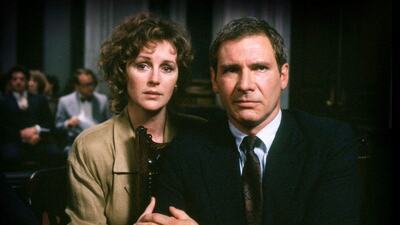
The Presumed Innocent Movie Was a Highlight of Hollywood’s Page-Turner Era

Prime Video’s The Boys Changes Pace, Becomes the Best Version of Itself

The Actors Rumored to Star in the Beatles Biopics Look Nothing Like Them. Good.
Comments
comments powered by Disqus
